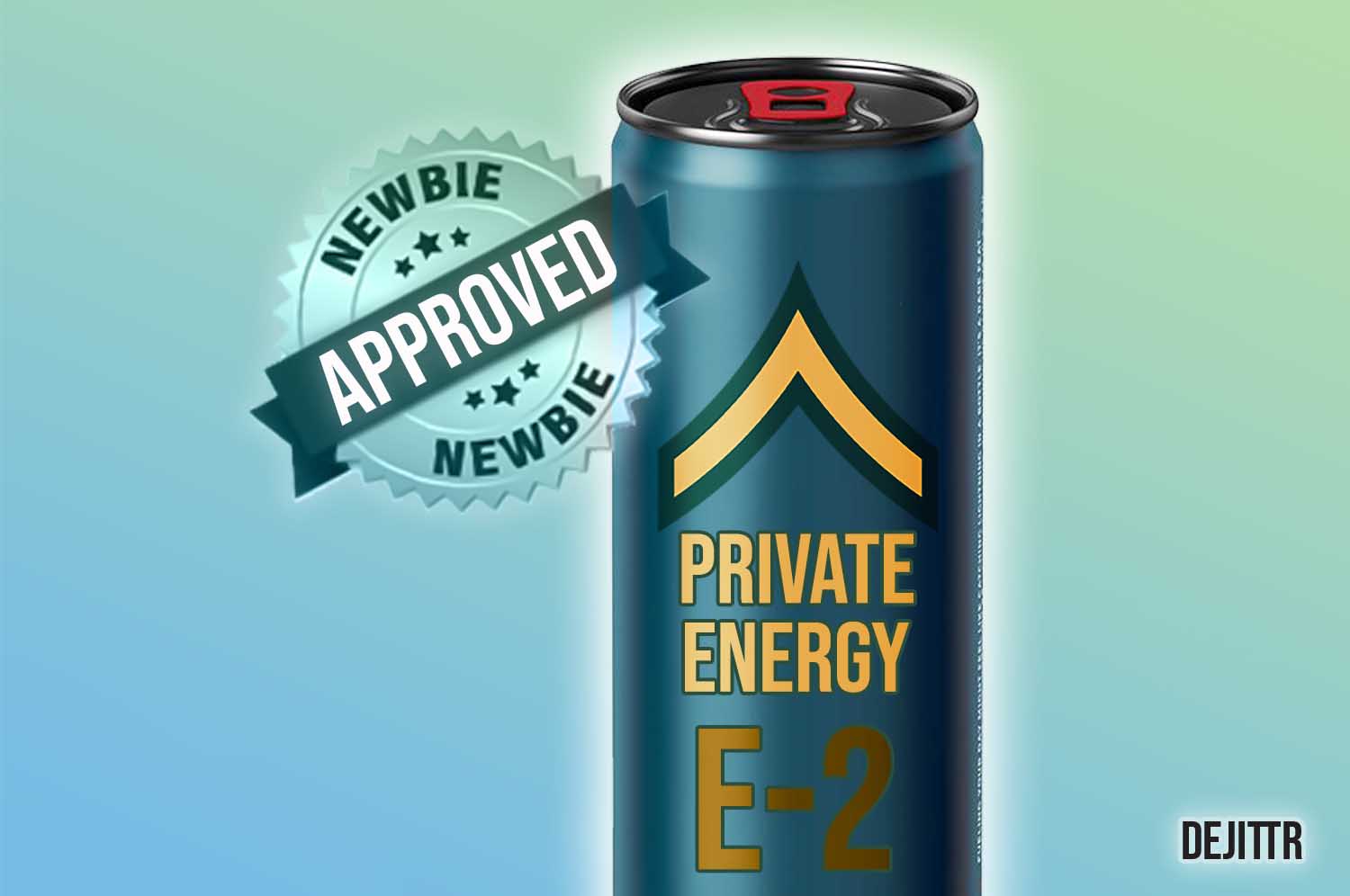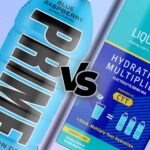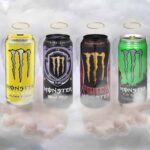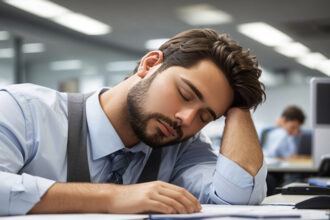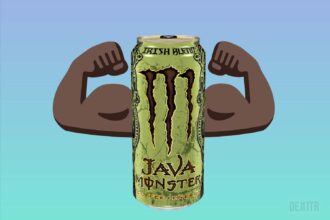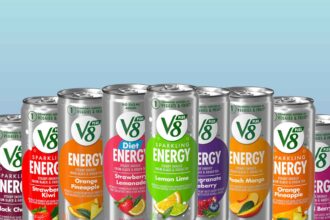Are you just about to take that first taste of your favorite energy drink? If that’s the case, you’ve come to the right location to begin your everlasting adventure with energy drinks.
Key Takeaways:
Generally, the first time you drink an energy drink, you may find the flavor a little strange. However, you may get used to it with time and begin to feel the effects of energy drinks within a few minutes to half an hour.
Read on to explore what type of taste to expect when drinking an energy drink for the first time, how long after energy drinks’ effects are noticed, and more.
Recommended Energy Drinks
| Regular Industry Leader | Red Bull (Amazon Link) |
| Natural Friendly Pick | Guru (Amazon Link) |
| Weight Conscious Pick | True North (Amazon Link) |
| Kosher, Gluten Free, Vegan, Halal | Celsius (Amazon Link) |
| Homemade | Dejittr DIY Option |
What Taste To Expect As A First Time Energy Drinker?
As a general rule, energy drinks have a sweet and sour taste. However, the intensity of the sweetness or sourness depends on the type of energy drinks you sip. Moreover, each energy drink has a wide range of flavors.
Here’s a chart explaining the taste of some of the popular energy drinks:
| Energy Drinks | Taste |
| Red Bull | Sweet and sour taste with the taste of carbonation |
| Monster | Sweet taste with and tangy flavor of apple juice |
| Rockstar | Similar to Red Bull but with a slightly sugary taste |
| Amp Energy | Similar to Mountain Dew but also has the typical energy drink taste |
| Full Throttle | Similar to herbal tea and its citrus flavor gives an orangey taste. |
Here’s a general list of ingredients found in most energy drinks:
- Carbonated Water
- Sugar
- Caffeine
- Artificial Sweeteners
- Herbs And Other Supplements
So the taste of any energy drink is determined by these ingredients. Sugar is one of the common ingredients in most energy drinks, so you can expect a slight taste of sugar.
You may also experience a tangy/sour taste if the particular beverage uses some citrus fruits like orange.
Due to the caffeine and other extracts, sometimes you may feel the taste is a bit bitter. Check out this post if you wonder how energy drinks taste without caffeine.
Overall, the taste will be sweet and tangy, along with the fizzy touch, because of the carbonated water.
Now, if you are already used to drinking sodas or coffee, you may not feel odd when you sip an energy drink for the first time. But even if you experience an odd taste after your first sip of any energy drink, don’t worry; it happens.
Over time, as you drink more energy drinks, you may start liking the drink as your systems get used to its taste.
Check out this guide to learn more about the taste of energy drinks.
How Long After Drinking an Energy Drink Does It Kick In?
The short answer: Within 10 minutes to half an hour, you start experiencing the kick from energy drinks.
- Most energy drinks include caffeine in them. So when you drink an energy drink, the caffeine quickly enters your system (within 10 minutes), elevating your heart rate and blood pressure.
- Caffeine peaks in the bloodstream between 15 and 45 minutes after consumption.
- Consequently, one will feel more awake and have better focus as a consequence.
- All of the caffeine will be absorbed in 30–50 minutes after drinking an energy drink.
- The caffeine’s effects will wear off within an hour, and a sugar crash might follow.
- Weakness and exhaustion will set in when energy reserves run low.
- The half-life of caffeine in the body is around 5-6 hours, which may take twice as long for women using birth control pills. Check out this recent article, “Consuming Energy Drinks While Pregnant here.“
- Depending on the person, it might take six to twelve hours for the body to fully flush the caffeine out of the system.
Please note that with energy drink consumption, there’s also a crash – a condition in which your blood sugar and energy levels reduce, leading you to experience a more tiresome feeling. Learn more about crashes resulting from energy drinks in the guide.
How Many Energy Drinks A Day Is Dangerous?
Energy drinks have caffeine as one of the main stimulating ingredients. When you drink energy drinks in more quantities, you also overdose on the caffeine intake.
For a healthy adult, ideally, the upper limit set for caffeine consumption is 400 mg.
Take the example of Red Bull as an energy drink: A single eight-ounce can of Red Bull has around 80 mg of caffeine.
So, you can have, at the most, five such cans of energy drinks in a day. Anything beyond five cans of energy drinks daily would be considered dangerous because of the caffeine overdose.
Please note that if you drink any energy drink that contains more caffeine, the limit of energy drinks you can have daily will decrease.
For instance, the monster energy drink (classic green), sixteen ounces, can contain almost double the caffeine content – 160 mg of caffeine. So even drinking more than two such cans of energy drinks in a day would be considered dangerous.
Caffeine doses of up to 400 milligrams per day are generally safe for healthy adults.
However, insomnia, headaches, dizziness, rapid heart rate, anxiety, dehydration, etc., are some side effects of consuming too much caffeine via food or drink.
How To Drink Energy Drinks Safely?
Here are some safe drinking tips for consuming energy drinks:
#1. Avoid Consuming More Than One Can Of Energy Drink Per Day
Usually, if you drink one-two cans of energy drink a day (once in a while), it’s okay. However, if you drink 5-6 cans of energy drinks per day, then that’s a serious concern! This is because you’d be going over the FDA’s daily caffeine consumption limit, and so much caffeine can cause a variety of health issues.
#2. Don’t Drink Too Many Caffeinated Beverages If You Drink Energy Drinks
If you are drinking energy drinks, then chances are that you are already consuming a decent amount of caffeine a day.
Since there’s an upper limit of caffeine intake a day, it’s a decision to avoid other caffeinated beverages in a day (if you also consume energy drinks).
#3. Avoid Mixing Energy Drinks With Alcohol
Caffeine in beverages may counteract the sedative effects of alcohol, giving the consumer a heightened sense of alertness.
The outcome is an increase in the potential for alcohol-related problems, as individuals may drink more and experience the effects of alcohol more profoundly than they realize.
Caffeine does not lower blood or breath alcohol concentrations or lessen impairment brought on by alcohol use since it has no impact on the liver’s metabolism of alcohol.
When compared, alcoholic beverages and energy drinks are quite different. In contrast, the former is believed to induce sleep while the latter promotes alertness and activity.
Alcohol and energy drinks might cancel each other out and keep you up all night. Because of this, you may get disoriented and drink more heavily than normal. So, to cut a long story short, avoid mixing alcoholic beverages with energy drinks.
See Related: Energy Drink Vs. Beer: All You Need To Know
When is The Best Time To Drink An Energy Drink?
Generally, the best time to drink an energy drink is in the mid-morning, afternoon, and pre-workout periods.
The afternoon pause is a tough time of day to get through. You may feel your energy fading and your blood sugar dipping after a midday meal. So if you find yourself sleepy in the afternoon, an energy drink could be just what you need to get through.
Usually, to have more concentration, alertness, and endurance, it’s best to drink energy drinks 10-60 minutes before you start your workout sessions.
Research indicates that consuming the proper quantity of caffeine can boost your performance during intense activities. Studies have shown that caffeine has an essential role in enhancing performance. However, the intake should be at limited levels.
What Age Should You Drink Energy Drinks?
As per American Beverage Association, energy drinks should not be offered to children below 12 years of age.
Due to the caffeine content in energy drinks, it is good to avoid energy drink consumption for children under 12.
Caffeine content is often rather high in commercial energy drinks. Caffeine may cause major cardiac issues in children if they consume too much of it. Because of their body size, children are more susceptible to the negative effects of caffeine on the heart than adults.
Children who consume large quantities of caffeine may have trouble falling or staying asleep, affecting their concentration and focus the next day.
Added sugar is also present in energy drinks, so children shouldn’t consume them. For example, a 12-ounce portion of an energy drink typically includes the same sugar as nine teaspoons.
Too much sugar in children’s meals may cause them to acquire excess weight, develop tooth decay, and even be at risk for type 2 diabetes. Water is the greatest beverage to keep an active child hydrated while they play sports.
And even if you are above 12 years, it is good to limit your caffeine consumption because the daily caffeine limit for 12-18 years is only 100 mg. There is only a max limit of 400 mg of caffeine per day for healthy adults.


